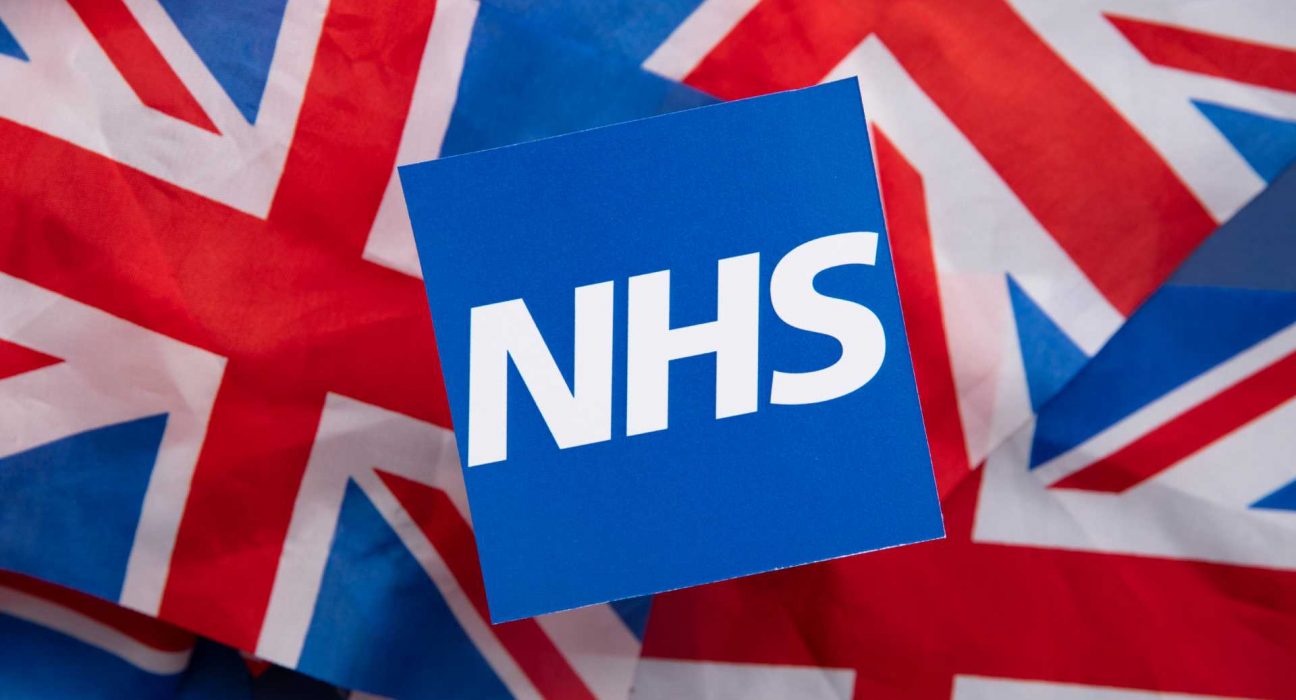In the UK’s National Health Service (NHS), Band 8C roles represent a senior tier of management and clinical leadership. These positions come with significant responsibility, competitive compensation, and a clearly defined career pathway. But what exactly does an NHS Band 8C salary look like in 2025, and what should professionals expect in terms of pay, benefits, and progression? Let’s explore in detail.
What Is the NHS Band 8C Salary in 2025?

As of 2025, the 8C NHS salary ranges from £74,290 to £85,601 per year, depending on experience and location. These figures are aligned with the Agenda for Change pay structure, which standardises NHS pay across UK.
| Years of Experience | Annual Salary (Band 8C) |
| 0–2 years | £74,290 |
| 2–5 years | £78,814 |
| 5+ years | £85,601 |
Location-Based Pay Supplements
Staff working in high-cost areas receive additional pay called the High-Cost Area Supplement (HCAS). Here’s how it breaks down:
| Area | Percentage of Basic Salary | Minimum | Maximum |
| Inner London | 20% | £5,414 | £8,172 |
| Outer London | 15% | £4,551 | £5,735 |
| Fringe | 5% | £1,258 | £2,122 |
These supplements significantly increase take-home pay, particularly for roles based in London.
What Is the Take-Home Pay for the 8C NHS Salary?
Take-home pay refers to earnings after deductions for tax, National Insurance, and pension contributions. For someone earning the top Band 8C salary of £85,601 in 2025, the estimated monthly net salary (after tax and pension) would be:
- Without London weighting: £4,800–£5,200/month
- With Inner London supplement: £5,400–£5,800/month
Note: These figures depend on individual tax codes, pension enrolment, and other deductions.
Who Is Considered Band 8 in the NHS Pay Structure?

The NHS Band 8 structure is divided into four sub-bands: 8A, 8B, 8C, and 8D. Individuals in Band 8 roles typically hold senior leadership, consultancy, or specialist positions.
Band 8C Examples
- Head of Human Resources
- Consultant Clinical Scientist (Molecular Genetics/Cytogenetics)
- Consultant Paramedic
These roles require strong leadership, advanced qualifications, and several years of relevant experience usually 4–5 years or more.
How Much Does an NHS Band 8B Earn Monthly Compared to 8C?
Here’s a comparison between Band 8B and Band 8C to help contextualise earnings.
| Band | Annual Salary (2025) | Monthly Take-Home Pay |
| 8B | £67,920 – £77,274 | £4,000 – £4,800 |
| 8C | £74,290 – £85,601 | £4,800 – £5,800 |
The jump from 8B to 8C usually reflects an increase in strategic responsibility and the scale of operations managed.
What Does Band 8 Mean in the NHS?

Band 8 represents a pivotal level in the NHS grading system, where professionals transition from operational roles to more strategic and policy-level responsibilities. It’s designed for those with:
- Advanced degrees or qualifications
- Several years of management or clinical experience
- Skills in people leadership, budgeting, and planning
What Is a Grade 8 Salary Band in the NHS?

A Grade 8 salary band in the NHS applies to senior professionals across managerial, clinical, and scientific disciplines. These bands span:
- 8A: Starts at £53,754
- 8B: Up to £77,274
- 8C: Tops at £85,601
- 8D: Can reach £101,677
Each sub-band represents a progression in responsibility, expertise, and salary.
What Roles Exist Within NHS Band 8?
Roles within NHS Band 8 range across clinical, scientific, and administrative sectors. Here’s an overview:
| Sub-Band | Typical Roles |
| 8A | Matron, Lead Nurse, Clinical Psychologist |
| 8B | Senior Service Manager, Clinical Director |
| 8C | Head of HR, Consultant Clinical Scientist, Consultant Paramedic |
| 8D | Assistant Director, Strategic Lead |
These roles combine frontline healthcare leadership with strategic management.
How Do You Get a Band 8 Job in the NHS?

Progressing to a Band 8 role typically involves:
- Building 5–10 years of NHS experience
- Gaining leadership or specialist qualifications
- Completing Continuous Professional Development (CPD)
- Applying for vacancies through NHS Jobs or internal promotions
- Demonstrating strong competencies in project management, team leadership, and financial oversight
Many 8C roles also require chartered status, postgraduate degrees, or clinical registration with regulatory bodies like the HCPC or NMC.
What Are the Benefits That Come with NHS Band 8C Salary?

Beyond the salary, NHS Band 8C roles offer an attractive suite of benefits:
- NHS Pension Scheme: Considered one of the most generous in the UK
- 27–33 days annual leave (plus bank holidays)
- High-Cost Area Supplements
- Flexible working options
- Health and wellbeing support
- Learning and development opportunities
What Is the Future Outlook for NHS Band 8C Salary and Roles?

The NHS continues to evolve, and senior leadership roles are critical to shaping future healthcare delivery. Salary forecasts suggest moderate increases in line with inflation and public sector reviews.
Key trends affecting Band 8C:
- Greater focus on digital transformation
- Increased integration of AI and data-led decision-making
- Higher demand for specialist clinicians and managers
How Has the 2025 NHS Pay Review Affected Band 8C Salaries?

The 2025 NHS pay review introduced several key changes that directly impacted the 8C NHS salary, improving compensation and adding greater flexibility within the pay structure. This move was designed to help with recruitment and retention at senior NHS levels, which continue to face pressure due to workforce shortages and increasing service demands.
- 5.5% Consolidated Uplift: All Agenda for Change (AfC) staff, including Band 8C, received a 5.5% consolidated uplift, effective from 1 April 2024. This means that baseline salaries increased across all pay points.
- Intermediate Pay Point Introduced: A significant structural change involved the addition of a new intermediate pay point within Band 8C (as well as other senior bands from 8A to 9). This allows for more gradual progression and flexibility in rewarding performance or experience.
- Backdated to April 2024: Both the uplift and the intermediate pay point were backdated to 1 April 2024, ensuring that all eligible staff received appropriate compensation for the prior financial year.
- Government Endorsement & NHS Implementation: The NHS Pay Review Body (PRB) recommendations were accepted by the government and formally implemented by the NHS Staff Council, becoming part of the updated NHS Terms and Conditions of Service (TCS) Handbook.
Real-World Impact on Band 8C Staff
- Those at the lower end of Band 8C saw a meaningful jump in their pay due to both the uplift and the availability of the intermediate point.
- Staff with 2–5 years of experience, previously locked into slower progression, now have more room for advancement.
- The changes are also seen as an effort to align compensation with growing responsibilities, especially as Band 8C roles are being redefined in the post-COVID, digitally transforming NHS landscape.
More details are available from NHS Employers, where the updated pay tables and terms are officially published.
What Are the Most In-Demand Band 8C Roles in the NHS for 2025?

In 2025, certain Band 8C roles have risen in demand due to strategic NHS initiatives, growing digital integration, and clinical service expansion. Both clinical leadership and non-clinical management positions are being heavily recruited for across NHS Trusts in England, Scotland, and Wales.
Clinical Leadership Roles in High Demand
- Head of Midwifery/Nursing: Tasked with leading large clinical teams and ensuring high-quality patient care across hospital trusts.
- Head of Emergency Care: Playing a crucial role in optimising emergency service delivery and capacity management.
- Assistant Director of Clinical Standards: Ensuring that all services meet CQC, NICE, and internal performance standards.
- Lead Nurse for Service Lines: Offering advanced clinical leadership and driving nursing strategy across departments.
- Consultant Clinical Psychologist: Critical for mental health transformation programmes.
- Consultant Clinical Scientist (Molecular Genetics/Cytogenetics): Leading scientific and diagnostic innovation in genomics labs.
- Consultant Paramedic: Shaping emergency protocols and working across both primary and secondary care.
Senior Non-Clinical & Operational Roles
- General Managers: Highly sought after to manage directorate operations, finance, and workforce.
- Programme Managers: Leading Trust-wide improvement programmes including EPR (Electronic Patient Record) rollouts.
- Head of Information Governance: Ensuring NHS-wide GDPR and data security compliance.
- Head of Primary Care Development: Overseeing projects related to ICS transformation and GP integration.
- Financial Senior Business Partner: Providing budgeting expertise across Trusts and Integrated Care Boards.
- Radiology Services Manager: Managing diagnostic service delivery and workforce strategy.
- Qualified Person for IMPs: Essential in Trusts engaging in clinical trials and investigational products.
- Deputy Head of Radiation Protection / Consultant Physicist: Crucial for radiological safety in oncology units.
- Divisional Director of Nursing for Surgery & Anaesthetics: Leading large surgical divisions in acute Trusts.
- Locality Clinical Lead: Embedded leadership within Integrated Care Systems (ICSs).
- Senior HR Managers & Tactical Response Leads: Managing rapid recruitment, change management, and emergency planning.
- Service Owners: Driving digital and clinical service delivery for products and platforms, especially in national programmes.
Why These Roles Matter in 2025?
- The increased complexity of NHS operations means senior leaders must manage both clinical outcomes and digital transformation.
- ICS and ICB reforms have created new strategic layers where Band 8C roles are now more central to planning and delivery.
- There’s an urgent focus on retention, patient flow, staff wellbeing, and digital maturity, making these leadership roles more vital than ever.
How Does the NHS Band 8C Pension Scheme Add to Long-Term Benefits?

While the 8C NHS salary is a strong incentive on its own, the NHS Pension Scheme is one of the most significant long-term financial benefits available to staff in this pay band. For those considering a senior NHS role, understanding the pension advantages is essential.
- Career Average Revalued Earnings (CARE) Scheme: Since 2015, the NHS has used the CARE model, meaning pensions are based on average salary throughout your career, not just your final salary.
- Employee Contributions: Band 8C employees typically contribute 10.2% – 11.3% of their salary, depending on where their earnings fall within the band.
- Employer Contributions: The NHS contributes 20.6% of salary, making the scheme extremely generous.
- Lump Sum Options: Staff can choose to take part of their pension as a tax-free lump sum on retirement.
- Early Retirement & Flexible Retirement Options: Band 8C staff nearing retirement can explore partial retirement or “retire and return” schemes.
Example Scenario
A professional retiring after 25 years in Band 8 roles, with an average salary of £82,000, could receive a pension of over £28,000 per year, in addition to a lump sum of around £80,000 (depending on individual circumstances).
How Can Professionals Prepare for an NHS Band 8C Interview in 2025?

Landing a Band 8C role is competitive, and preparing for the interview process is key to success. These senior-level positions often involve multi-panel interviews, assessment centres, and presentations on strategic topics.
Interview Preparation Tips
- Understand the NHS Long Term Plan: Know current NHS priorities such as digital transformation, population health, workforce planning, and patient safety.
- Review the Trust’s Strategic Objectives: Align your answers to their five-year plan or Integrated Care System (ICS) goals.
- Demonstrate Leadership Skills: Use examples of how you’ve led change, managed budgets, improved outcomes, or solved complex problems.
- Master STAR Technique: Answer competency-based questions using the Situation, Task, Action, Result format.
- Presentation Prep: Many Band 8C interviews include a 10–15 minute presentation. Common topics in 2025 include:
- Reducing waiting lists through digital tools
- Improving workforce retention
- Integrating primary and secondary care services
Common Interview Questions
- “Tell us about a time you led a service transformation.”
- “How would you respond to budget cuts without affecting patient care?”
- “What does good governance look like at Band 8C level?”
Conclusion
The 8C NHS salary is undoubtedly competitive, especially when considering the pension, career growth, and job security. While these roles come with high expectations, they also offer a chance to make strategic contributions to the NHS making them a worthwhile goal for ambitious professionals.
FAQs About NHS Band 8C Salary
What qualifications are needed for a Band 8C NHS role?
Most roles require a degree (often postgraduate), relevant certifications, and several years of experience in senior roles within healthcare or related fields.
Can you negotiate an NHS Band 8C salary?
Salaries are fixed under Agenda for Change but location-based supplements or adjustments may apply depending on the Trust.
How long does it take to reach Band 8C?
Typically, professionals reach Band 8C after 10–15 years of progressive NHS experience, moving through Bands 6–8A/B.
What’s the difference between Band 8C and Band 8D?
Band 8D roles are more strategic and senior than 8C, with salaries ranging up to £101,677. The roles often include director-level responsibilities.
Are Band 8C roles clinical or non-clinical?
They can be both. Clinical roles include consultant paramedics or clinical scientists, while non-clinical ones include HR, finance, or IT leadership.
Where can I find Band 8C job listings?
The best sources are NHS Jobs, NHS Trust websites, and platforms like Nurses.co.uk.
Is private healthcare experience relevant to Band 8C roles?
Yes, but NHS experience is generally preferred. Private sector experience may support your application if it involves leadership and governance.









Leave feedback about this